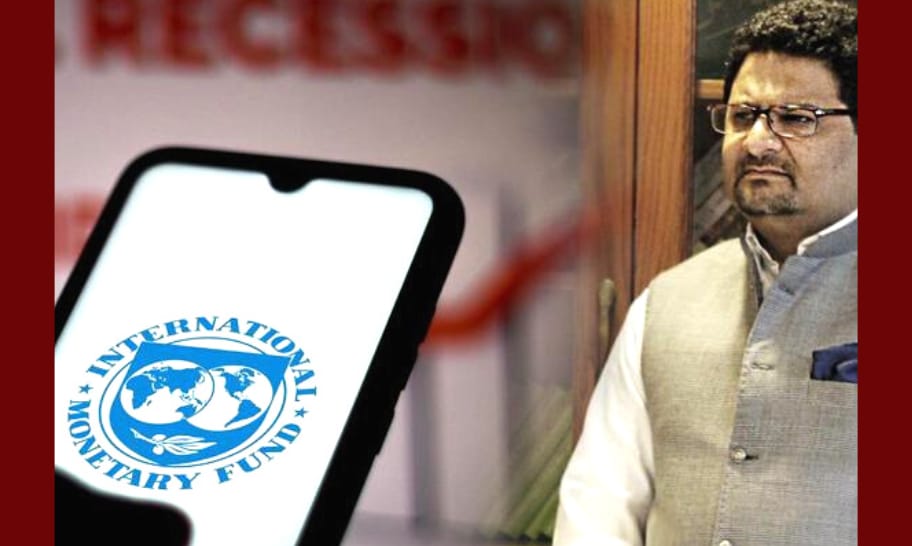Introduction:
Miftah Ismail, the former Finance Minister of Pakistan, was once touted as the savior of the country’s economy. In recent months, Miftah Ismail has garnered significant attention through his frequent public appearances, including participation in numerous podcasts and published opinion pieces in Pakistani newspapers. While he has been widely discussed, it is important to examine his actual plans and proposed policies. A closer examination of this so-called savior and his policies and beliefs reveals that he is a staunch supporter of neo-liberal economic principles, which primarily benefit the business elite rather than the general public. This critique will examine the key elements of Miftah Ismail’s economic policies, and why they are not a solution for the ongoing economic crisis in Pakistan.
Economic Background:
Pakistan is facing an economic crisis that has led to rising inflation, a growing trade deficit, and an increasing number of manufacturing companies shutting down. Miftah Ismail’s background as a former IMF employee and a successful industrialist plays a crucial role in shaping his economic policies. The IMF has long been associated with implementing neo-liberal economic principles, which prioritize market efficiency and free trade over social welfare. As a successful industrialist, Miftah Ismail’s policies are likely to be biased towards the interests of the business elite.
Miftah comes from an industrialist family. He was appointed as finance minister in June 2018, when the inflation rate in Pakistan was 13.4%. However, within a month, the inflation rate jumped to 21.32% and by August it had reached an all-time high of 27.26%. After Miftah Ismail’s removal as finance minister, Ishaq Dar was appointed in his place and the inflation rate improved slightly. It was predicted that Miftah Ismail and Ishaq Dar will be working hand in hand in reviving the country’s economy but Miftah was upset with Dar’s Policies and was unhappy about his being replaced as the Finance Minister.
Miftah Ismail’s Economic Policies:
The neo-liberal tout Ismail who once said that anyone who buys PIA will get Pakistan Steel Mill for free has had a policy shift himself. However, he has recently been talking about “Reimaging Pakistan” and advocating for economic and political reforms. He is now speaking out against dynastic politics in Pakistan and has criticized the Pakistan Muslim League-Nawaz (PML-N), which has caused him to lose popularity within the party. It is speculated that Miftah Ismail will soon launch his own political party. His new slogan of ‘Reimagining Pakistan’ is reminiscent of the Naya Pakistan of Imran Khan. Miftah Ismail’s Policies will be focusing on Exports and controlling the Trade Deficit and CAD.
Focus on Exports and Privatisation:
One of the key elements of Miftah Ismail’s policies is the promotion of exports and the reduction of the trade deficit. He has stated that he will provide tax breaks to companies that engage in exports, while heavily taxing those that do not. This approach is in line with neo-liberal economic principles, which prioritize exports and free trade. However, it is also likely to suppress small and medium-sized enterprises (SMEs), as the tax breaks will primarily benefit large, established companies that are already engaged in exports.
Another element of Miftah Ismail’s policies is the promotion of mass privatization. This is where Miftah Ismail’s policy has got him under the eye. At one time he wanted mass privatization and after his removal as the Finance Minister, he criticized the 1% of Pakistan which has all the powers and major industries. The neo-liberal principle of reducing the role of the state in the economy is likely to result in the transfer of state-owned assets to the private sector. This shift of power towards the business elite is likely to further suppress SMEs, as they will face increased competition from larger, better-capitalized companies.
The Suppression of Small Businesses:
The concentration of economic power in the hands of the business elite is likely to result in the suppression of SMEs, which are crucial for the growth and development of the economy. Research has shown that SMEs play a crucial role in creating jobs, reducing poverty, and promoting entrepreneurship (Schüssler, 2009). By promoting policies that favor the business elite, Miftah Ismail’s policies are likely to stifle the growth and development of SMEs, and ultimately undermine the country’s economic prospects.
The results of these policies would be unfavorable to the small industries as all the policies are designed to favor the elite as opposed to the mass number of middle or lower-middle-class people. Giving relaxation to the big industries and companies the main issue that will rise is the suppression of the small scale business and industries. One company that goes up and surpasses all competitors sees high sales and demand and within this, more supply is done. With more demand, the company focuses on overproduction, and the market is filled with that particular product. This results in one company succeeding and destroying small industries and companies. Many companies that existed 5 to 7 years ago no longer exist because the market was already dominated by a few companies run by the elites.
Conclusion:
In a nutshell, Miftah Ismail is gaining popularity through social media and is vociferously proposing his ideas on reforming the economy on every platform. Yet, the facade aside, it’s been done in bad faith; to avenge his removal as finance minister. Pakistan is in dire need of economic reforms or maybe a revolution but when it comes to economic reforms in Pakistan, the one percent has to be controlled. Instead of giving tax relief to the big companies, more tax should be imposed and tax reliefs should be given to small scale industries and companies to help them grow. It seems that bringing the reforms that Miftah Ismail suggests will only benefit the already well-established companies in Pakistan.




